
Aug 10, 2021
SAFE’s Director, Arlene Wilkie will be joining the Advocacy Exchange virtual event at 4-6pm EDT.
The event is the largest cross-disease advocacy initiative in healthcare, giving access to patient organisations and free resources from over 50 organisations. Hosted by @GRYTHealth and @BristolMyersSquibb, register at TheAdvocacyExchange.com. #AdvocacyExchange
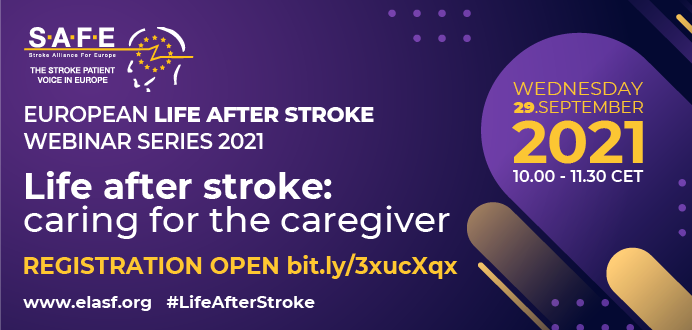
Aug 2, 2021
We are delighted to let you know that the third in our series of free webinars on Life After Stroke: caring for the caregiver, is now open for registration https://bit.ly/3xucXqx
The session looks at some of the challenging aspects posed to informal carers, and the impact that caring for a stroke survivor might have on their lives. It will also cover predictors of wellbeing and resilience in carers and good practice examples of carer support and how to implement them.
If you missed our other events in the Live After Stroke series of webinar, you can now catch up on demand at elasf.org
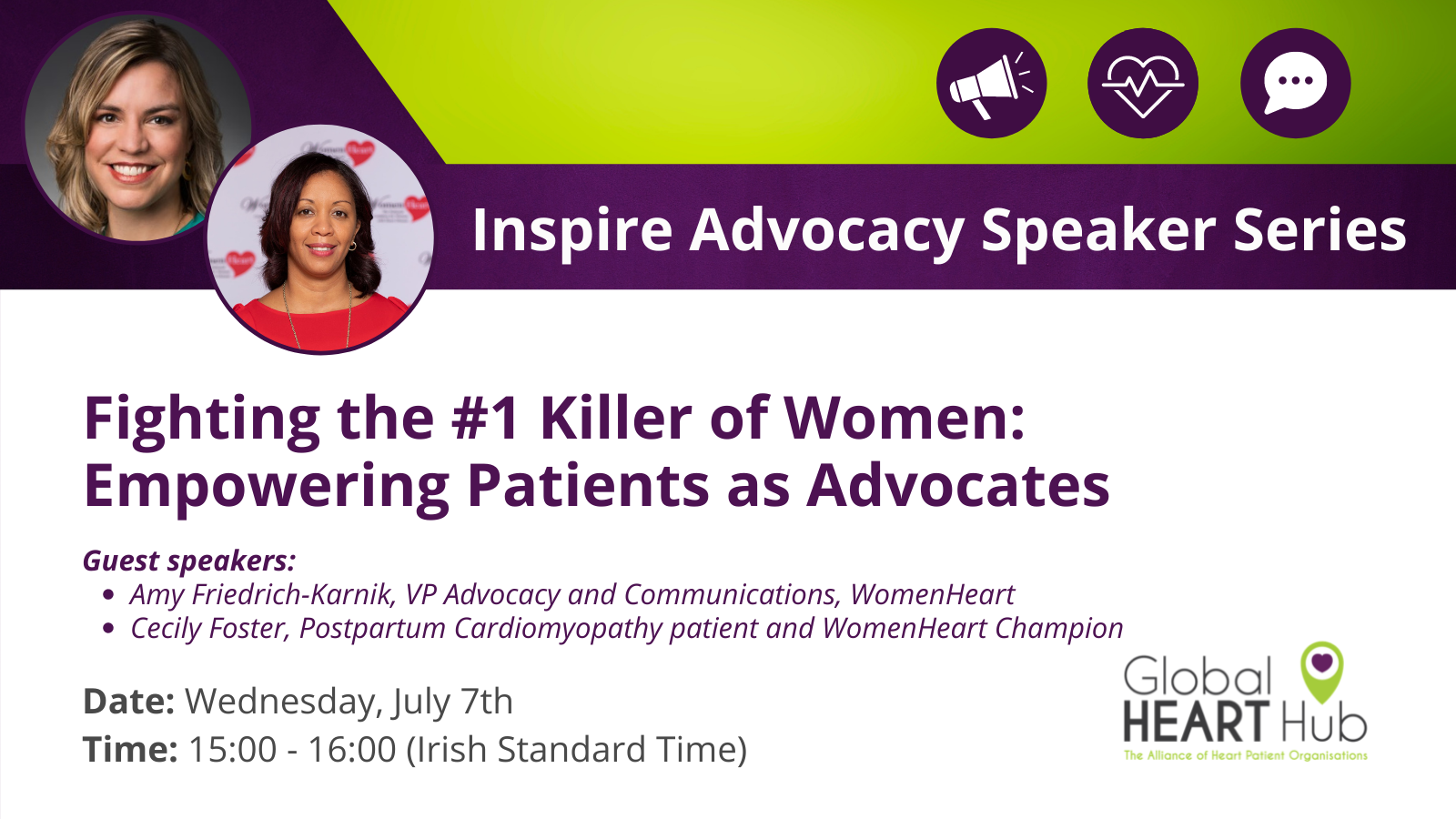
Jul 5, 2021
Heart disease is the #1 killer of women. This is under-recognised with adverse consequences for the #diagnosis & treatment of women. Join our Inspire #Advocacy Speaker Series with Amy Friedrich-Karnik, @WomenHeartOrg, & Cecily Foster, WomenHeart Champion, on July 7! https://bit.ly/3zN6Wqo
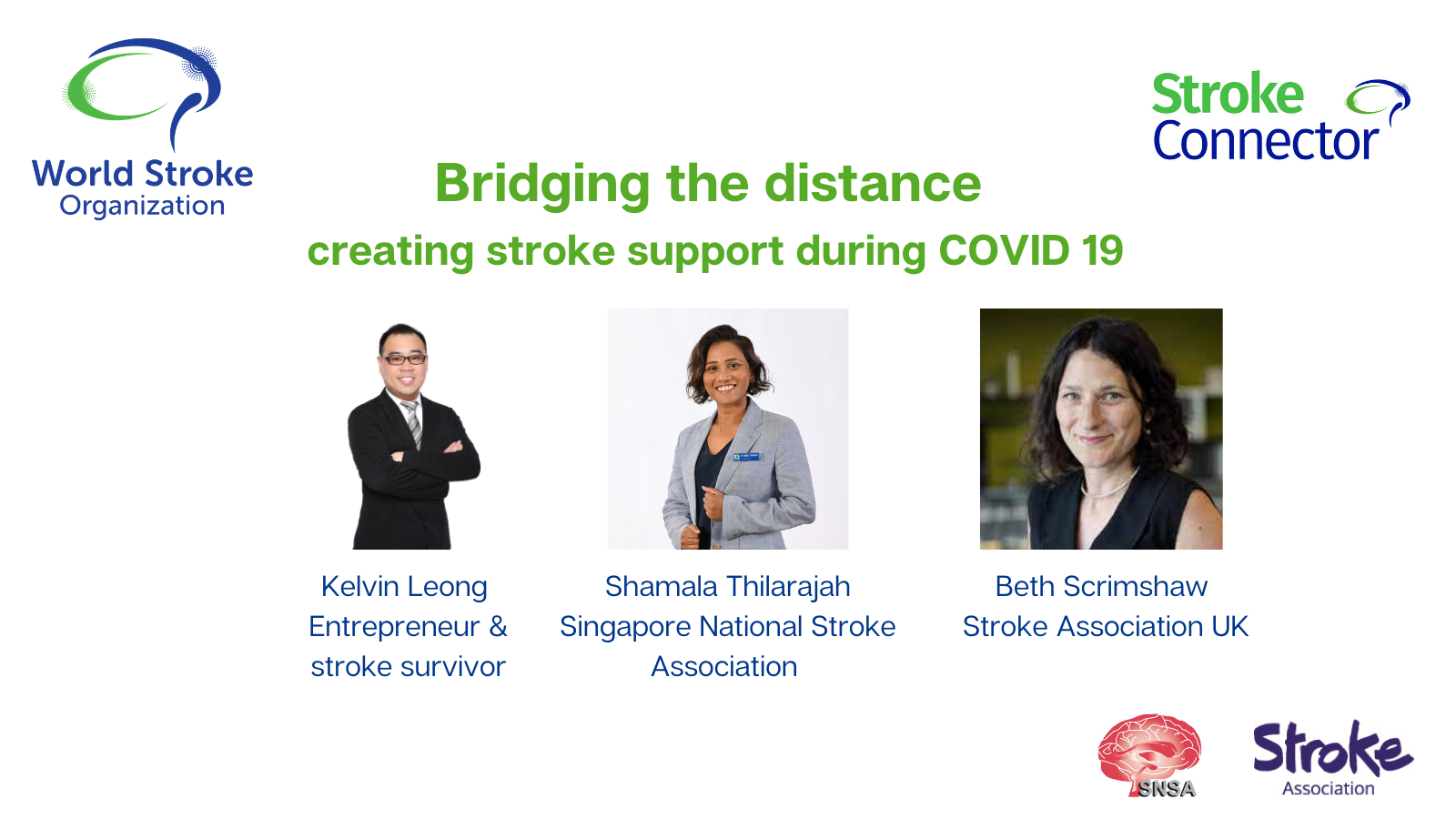
Jun 29, 2021
A one-hour webinar on 1 July, 11.00 BST/12.00 CEST, Bridging the distance – creating stroke support during COVID-19, will look at how international stroke support organisations have delivered services during the pandemic.
Join the panel, Kelvin Leong, stroke survivor, Shamala Thilarajah, Singapore National Stroke Association and Beth Scrimshaw, Stroke Association in the UK who will share learnings and insights about delivering online support.
This interactive event will be of interest to those working in discharge planning, community/primary healthcare settings, and patient advocacy.
Register here
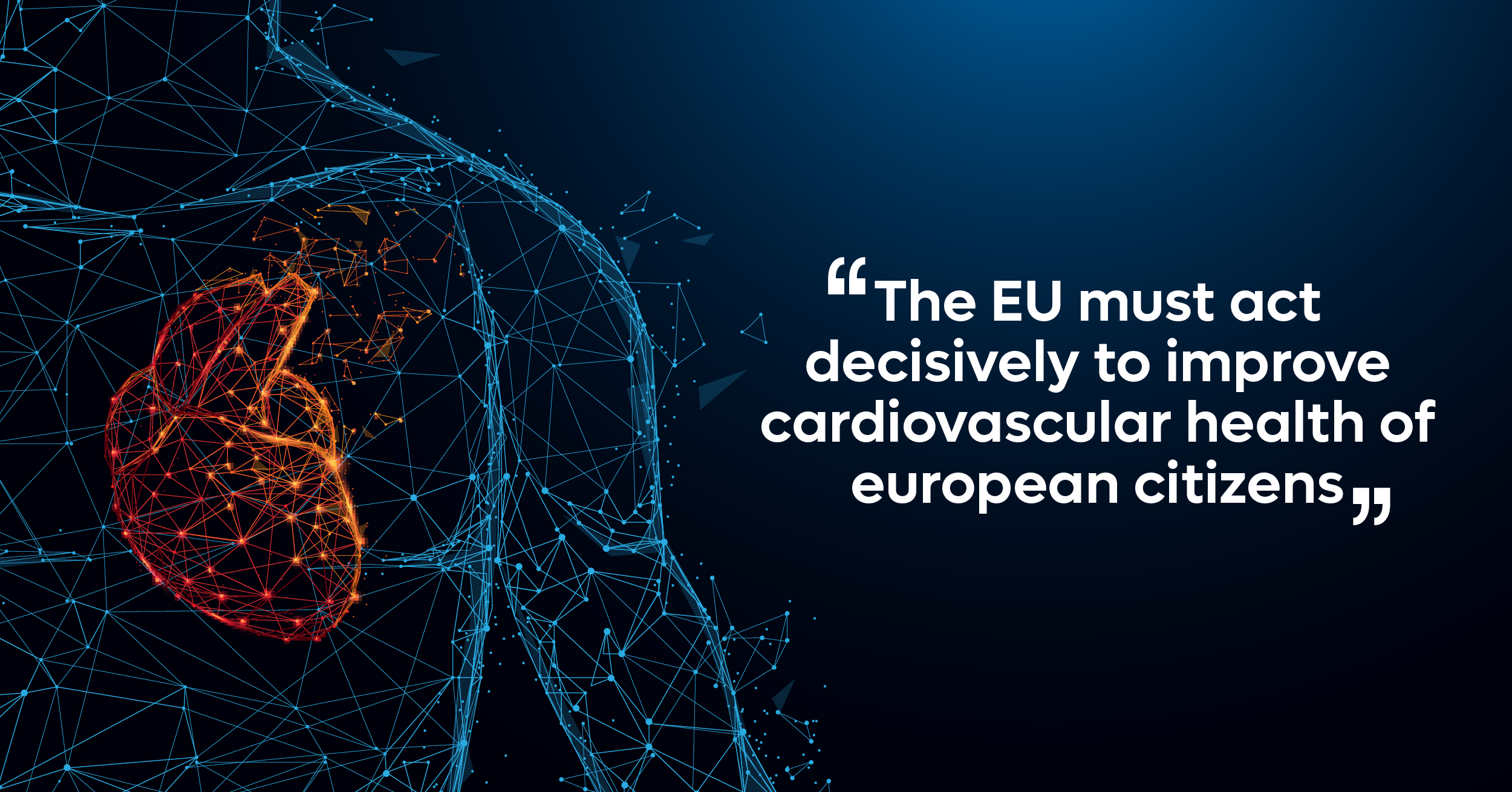
Jun 22, 2021
SAFE has signed a joint statement (16 June 2021) calling on the EU to develop a comprehensive EU plan on cardiovascular disease (CVD). Strokes and heart attacks are cardiovascular events and are the leading cause of death in Europe.
The signatory organisations jointly call for a comprehensive EU policy response to address the increasing burden of cardiovascular disease and ensure that citizens can live longer, healthier lives and enable them to continue to contribute to society and the economy.
After a decline in mortality over the past several decades, the numbers are rising again. CVD is linked to health inequalities, be it between geographies or be it by gender. Impacting people of all ages and is set to increase as Europe’s population is ageing.
The COVID-19 pandemic has worsened the situation, affecting diagnosis and treatment.
Through an EU-wide CVD Plan, ambitious incentives and measures should be implemented across prevention, screening, early detection, access to treatment and rehabilitation to keep people in good health and optimise their quality of life. This will strengthen the resilience at the population level, whilst making efficient use of healthcare resources.
The signatory organisations jointly call on EU decision-makers to develop an EU Plan on CVD to ensure that European citizens live longer, healthier lives – regardless of their gender, or where they were born or live in the EU – and enable them contributing to society and the economy. Thus, ensure more Health Equity across the EU.
The undersigned organisations stand ready to collaborate with EU institutions and national governments to develop and implement such a plan to address the burden of cardiovascular disease.
LIST OF SIGNATORIES:
International Association of Mutual Benefit Societies (AIM)
European Trade Association representing the medical imaging, radiotherapy, health ICT and electromedical industries (COCIR)
European Chronic Disease Alliance (ECDA)
European Federation of Pharmaceutical Industries Associations (EFPIA)
European Heart Network (EHN)
European Kidney Health Alliance (EKHA)
European Society of Cardiology (ESC)
European Confederation of Pharmaceuticals Entrepreneurs (EUCOPE)
The European FH Patient Network (FH Europe)
Global Heart Hub (GHH)
European Trade Association representing the medical technology industries including diagnostics, medical devices, and digital health (MedTech Europe)
Stroke Alliance for Europe (SAFE)
Read the joint statement here.
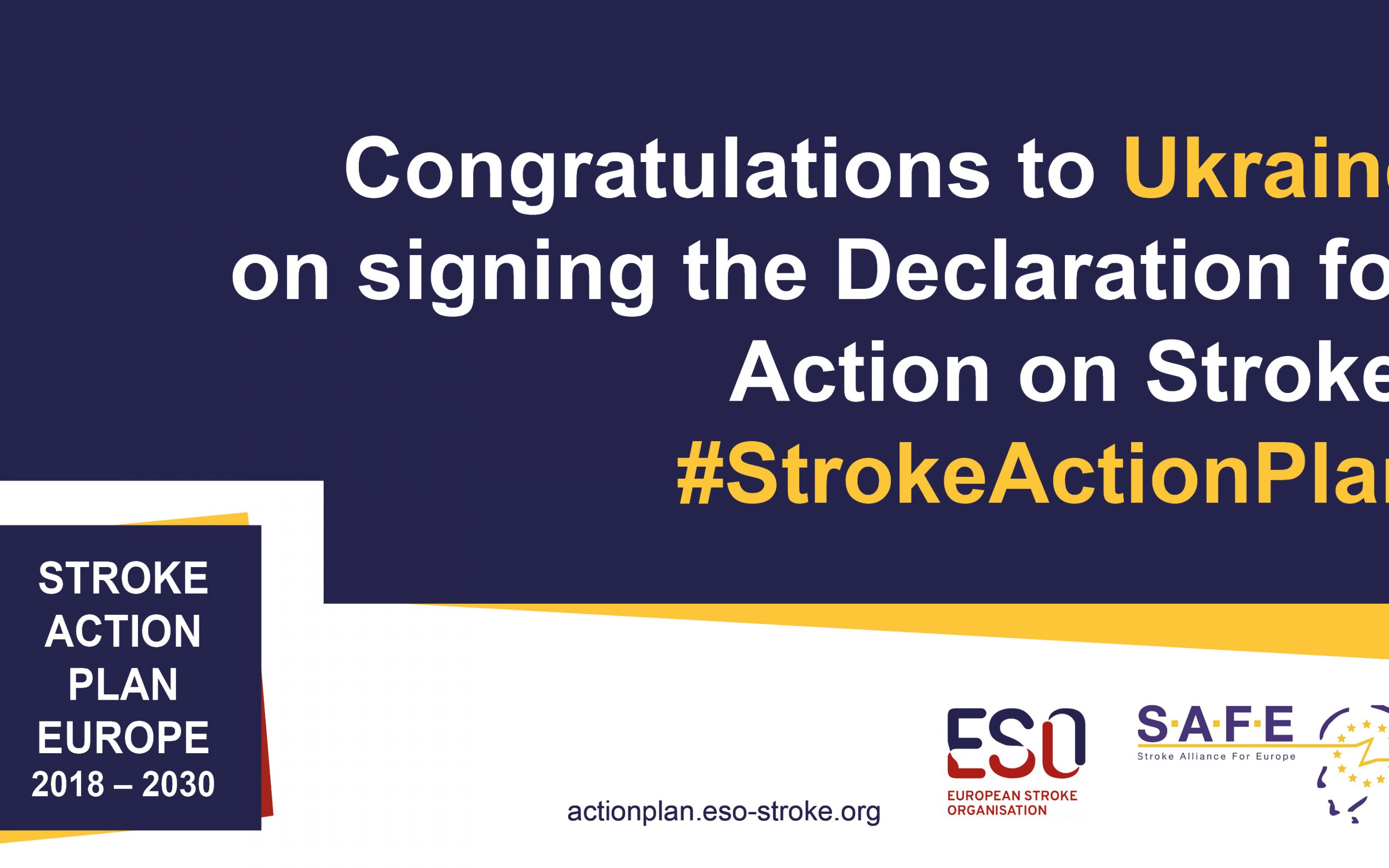
Jun 14, 2021
This month, Lithuania joins Ukraine as the second country to sign up to the Stroke Action Plan for Europe Declaration for Action on Stroke.
On 19 May 2021, Ukraine announced that the Ministry of Health of Ukraine along with the National Health Service of Ukraine support and have signed the Declaration for Action on Stroke.
We launched the Declaration on European Stroke Awareness Day, 11 May 2021, in partnership with the European Stroke Organisation (ESO). This initiative aims to encourage European countries to show their commitment to improving stroke prevention, treatment, care and support, by signing the Stroke Action Plan for Europe Declaration and add their voice to the fight against stroke across Europe.
In 2020 acute stroke care was recognised as a priority in Ukraine where stroke mortality is higher than in most European countries:
- It is estimated that up to 130,000 strokes occur in Ukraine each year
- 30-40% of people who have a stroke die within the first month from the onset
- About 70% of stroke survivors have persistent neurological deficits that affect their lives
- One third of stroke patients in our country are people of working age.
Dr Andriy Vilensky, Head of the National Health Service of Ukraine said, ‘…timely and effective medical care increases the chances of a full recovery of the patients and can save their lives….we have found that in 2020 in the contracted facilities the in-hospital stroke case-fatality rate fell by 6%. We strongly believe, the main reason for this was that these patients were admitted to hospitals that had an opportunity to provide quality care. These are good results of the first months of implementing a new approach to the organisation and payment for medical services in acute stroke in Ukraine.’
Dr Francesca Romana Pezzella, Co-Chair of the Stroke Action Plan for Europe Steering Committee added, ‘This is a fundamental milestone in the implementation of the Stroke Action Plan in Ukraine, and an important achievement towards the plan’s progress in Europe. Ukraine is, in fact, the first among the countries participating in the SAP-E to have officially endorsed the Declaration. We hereby acknowledge the support this document received from the authorities that have signed it, and the successful efforts of the Ukrainian Anti-Stroke Association in raising the awareness about our objectives, networking and communicating tirelessly with all interested parties, promoting the importance of the Declaration and setting a challenging example for the other national teams, committed to the same result”.
It is estimated that over one million people in Europe have a stroke and 460,000 die as a result of a stroke every year and almost 10 million people are living with the impact of stroke. The costs related to stroke in Europe were recently estimated as high as €60 billion and are predicted to increase to rise to €86 billion, a 44% increase, by 2040.
SAFE and ESO are calling on health ministries across Europe to support the Declaration for Action on Stroke to reduce the burden of stroke in Europe.
Join Ukraine, Lithuania and others – find out more at https://actionplan.eso-stroke.org/










